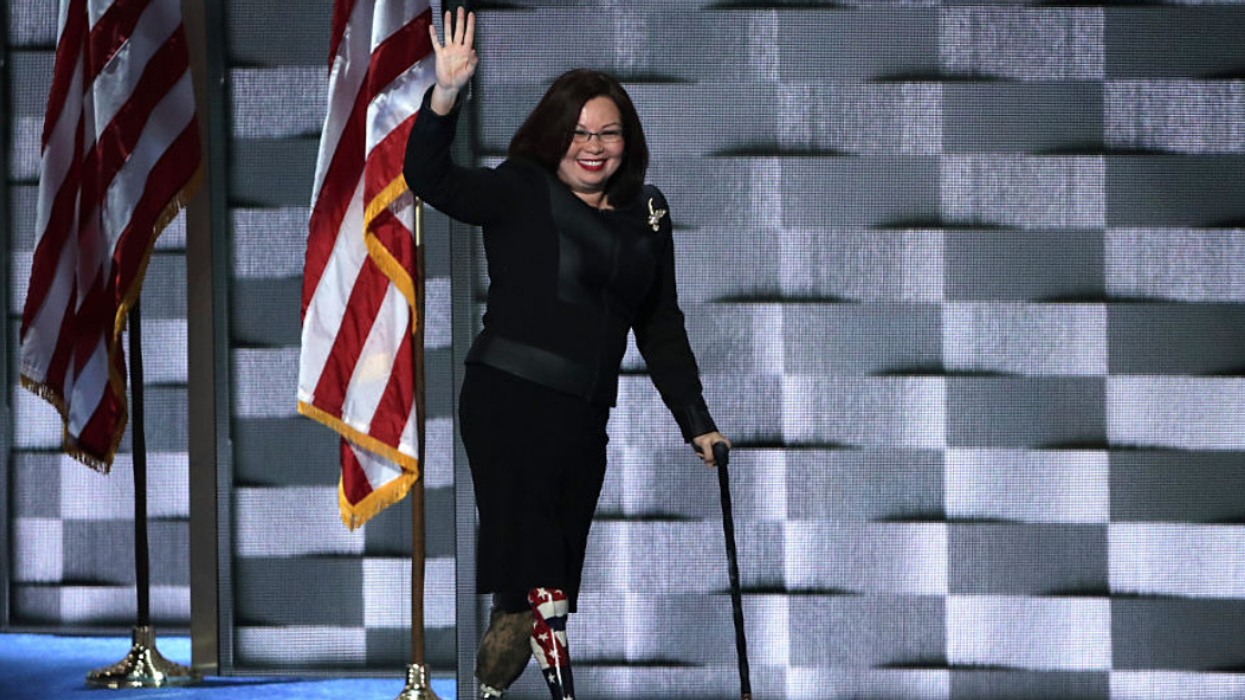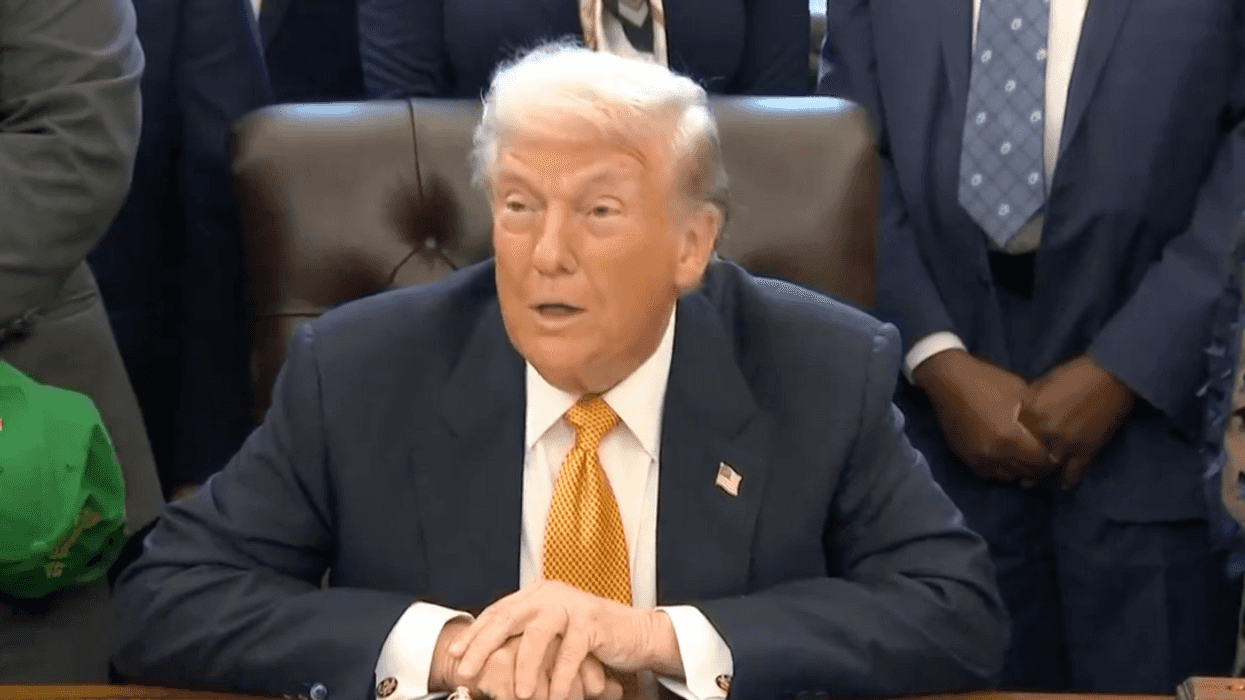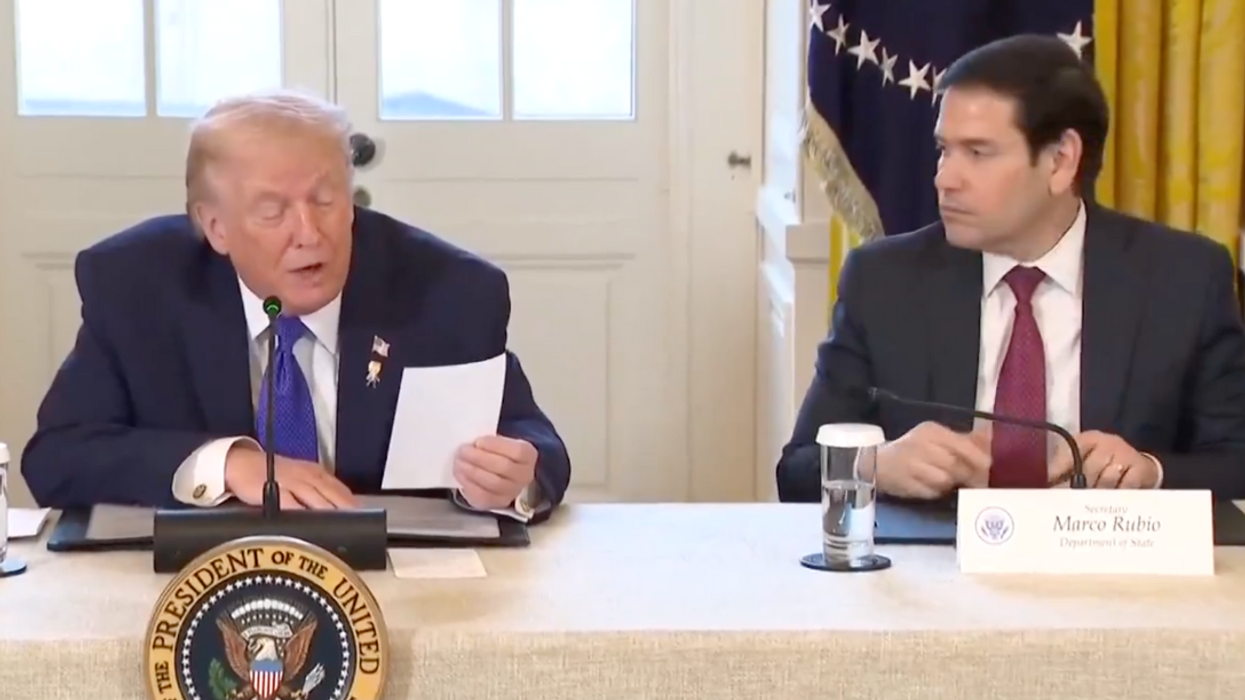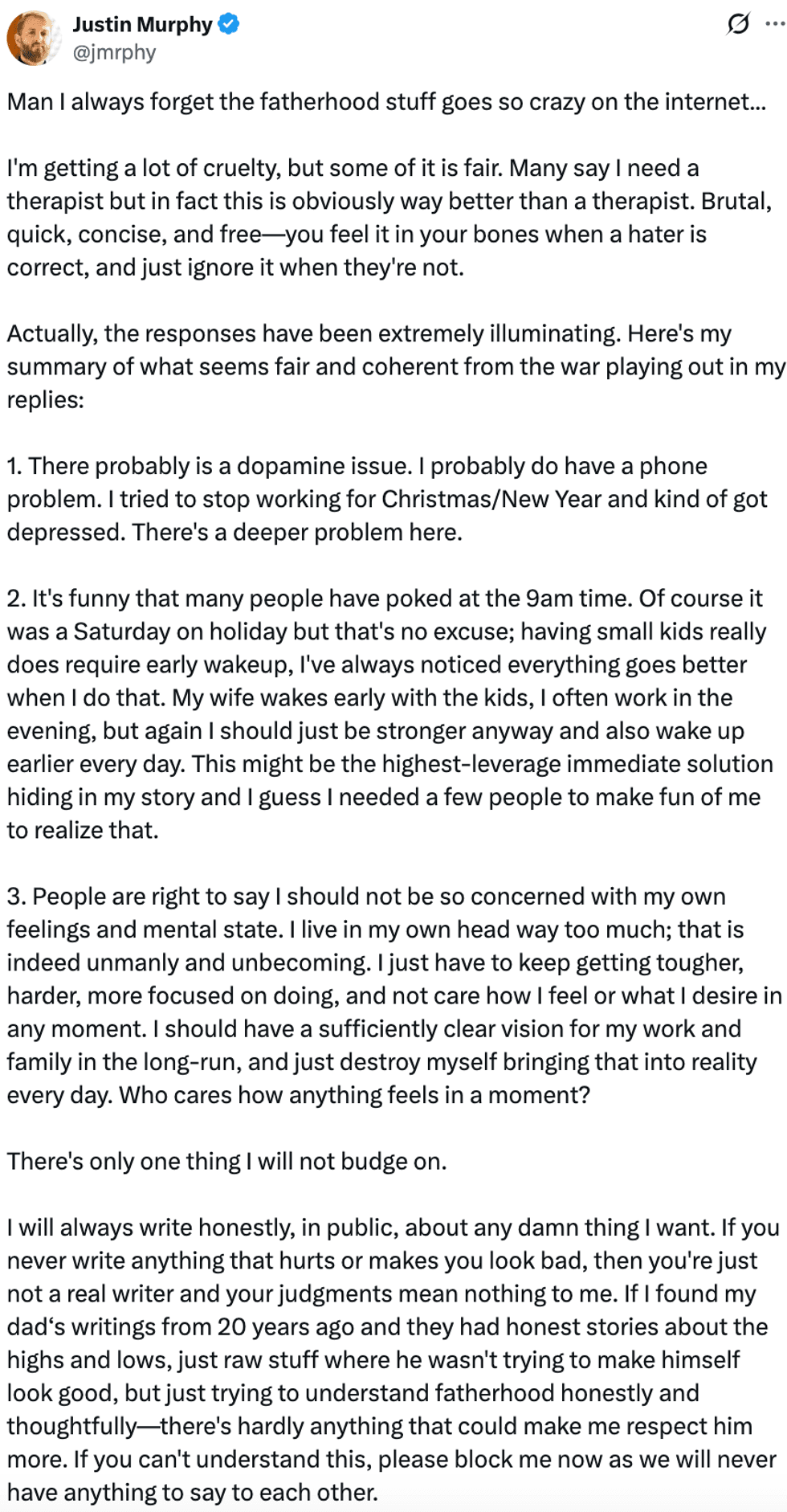President Donald Trump's sudden decision to ban transgender individuals from serving in the military in any capacity sparked a flurry of condemnation from lawmakers from both sides of the aisle in 2017 and now, just a day after the Supreme Court voted to uphold the ban, Senator Tammy Duckworth (D-IL) has spoken out.
Duckworth, a double amputee who lost both of her legs in combat in 2004 during the Iraq War, criticized the high court's 5-4 ruling, which allows the Trump administration to enforce the ban.
"When I was bleeding to death in my Black Hawk helicopter on that dusty field in Iraq, I didn't care if the American troops risking their lives to help save me were gay, straight, transgender, black, white, male or female," Duckworth said. "All that mattered was they didn't leave me behind."
She added:
"Today's decision is disheartening not only because it will help the Trump Administration discriminate against an ever-shrinking portion of our population who are willing to serve in uniform, but also because it enables the Administration to further disrupt to our military and weaken our national security.
I hope the Court takes up this case and loudly and clearly tells the Administration that this sort of discrimination has no place in our military, and I hope my colleagues on both sides of the aisle in Congress will send the same message and show our servicemembers that we have their backs."
Duckworth, whose painfully intimate experience with the horrors of war have no doubt influenced her policy approaches while in office, was praised for stepping up and defending a community rendered all the more vulnerable by the Trump administration's attacks.
Duckworth issued a similar message in 2017 as the proposed ban first made headlines and as the Trump administration prepared for a volley of legal challenges.
"When my Black Hawk helicopter was shot down in Iraq, I didn't care if the American troops risking their lives to help save me were gay, straight, transgender or anything else," she said at the time. "All that mattered was they didn't leave me behind. If you are willing to risk your life for our country and you can do the job, you should be able to serve — no matter your gender identity, sexual orientation or race. Anything else is discriminatory and counterproductive to our national security."
Duckworth has long criticized President Donald Trump and his administration, and once infamously referred to him as a "five-deferment draft dodger" during her remarks on the Senate floor.
"I spent my entire adult life looking out for the well-being, the training, the equipping of the troops for whom I was responsible. I will not be lectured about what our military needs by a five-deferment draft dodger," Duckworth said in January 2018 as the nation grappled with a (mercifully shorter) government shutdown.
Duckworth's statement made headlines around the country––and cemented her as a darling of the left-wing––when she took the president to task both for his aggression toward North Korea and for his Twitter usage:
"I have a message for Cadet Bone Spurs: If you cared about our military, you'd stop baiting Kim Jong-un into a war that could put 85,000 American troops — and millions of innocent civilians — in danger. You'd stop hiding behind your Twitter account, stop blaming everyone else. You would tell your party — a party that controls the House, Senate and the White House — to do their job. Stop allowing the most extreme wing of your party to prevent us from passing a long-term funding solution that the military itself -- your own leaders that you nominated and appointed -- is asking for.
When Trump first announced the transgender military ban in July 2017, a White House official insisted politics "was never an impetus" for Trump's decision but said that "it will be fun to watch some of them [Democrats] have to defend this." Another official said the move "forces Democrats in Rust Belt states like Ohio, Michigan, and Wisconsin, to take complete ownership of this issue," which could hurt their political prospects.
Reports indicate that Trump's decision to bar transgender individuals from military service came as a response to an internal House Republican fight over sex reassignment surgery which threatened funding for his border wall. White House sources told reporters that Trump's sudden decision "was, in part, a last-ditch attempt to save a House proposal full of his campaign promises that was on the verge of defeat."
The announcement of the ban still came as a shock, given an abruptness magnified by the president's decision to declare it––as he often declares policy proposals––via tweet.
Trump's decision came a month after James Mattis, his Secretary of Defense, announced he would delay implementation of the plan to allow transgender troops by six months. Mattis made the decision on the eve of a deadline set a year ago by then-Defense Secretary Ashton Carter. The Joint Chiefs of Staff had requested a six-month reprieve, saying they needed to conduct a review of how allowing transgender recruits to serve would affect the military's effectiveness.
Former Defense Secretary Ashton Carter's decision––a historic shift in gender policy––would have required all services to allow transgender individuals to enlist starting this year. In October, the Department of Defense distributed a commander's training handbook and rolled out medical protocol and guidance for changing a service member's gender in the Defense Eligibility Enrollment System per Carter's guidelines.
"This is the right thing to do for our people and for the force," Carter said last year, explaining his landmark decision. "We're talking about talented Americans who are serving with distinction or who want the opportunity to serve. We can't allow barriers unrelated to a person's qualifications prevent us from recruiting and retaining those who can best accomplish the mission."
Carter cited RAND Corporation estimates: The RAND study suggests the number of transgender individuals serving in the active duty component of the military is between 1,320 and 6,630 of a total 1.3 million troops. The study notes there are roughly 65 service members who seek a gender transition every year. RAND also found that the number of transgender service members "would likely be a small fraction of the total force and have minimal impact on readiness and health care costs."

















 @jmrphy/X
@jmrphy/X @CatholicCharm/X
@CatholicCharm/X @SWENGDAD/X
@SWENGDAD/X @nhoodpublicist/X
@nhoodpublicist/X @jmrphy/X
@jmrphy/X @0xPuff/X
@0xPuff/X